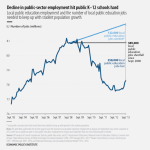National education reform advocate sought Calderon'€™s influence
Al Jazera America.
A private meeting with lobbyists for Michelle Rhee occurred before the CA state senator sponsored education reform bill
- Topics:
- Politics
- Crime
- Law & Justice

SACRAMENTO, Calif. — Lobbyists representing the nonprofit founded by education reform activist Michelle Rhee met privately with Thomas Calderon, a political dealmaker here, the day before Calderon’s brother, state Sen. Ronald Calderon, introduced a controversial bill that would have toughened teacher performance evaluations, according to people familiar with the matter.
The meeting with lobbyists for StudentsFirst, Rhee’s nonprofit lobbying organization, occurred on Feb. 20 of this year. The next day, state and other public records show, Senator Calderon introduced the bill championed by Rhee’s group. There is no indication that Rhee attended the meeting, and she did not respond to requests for an interview.









